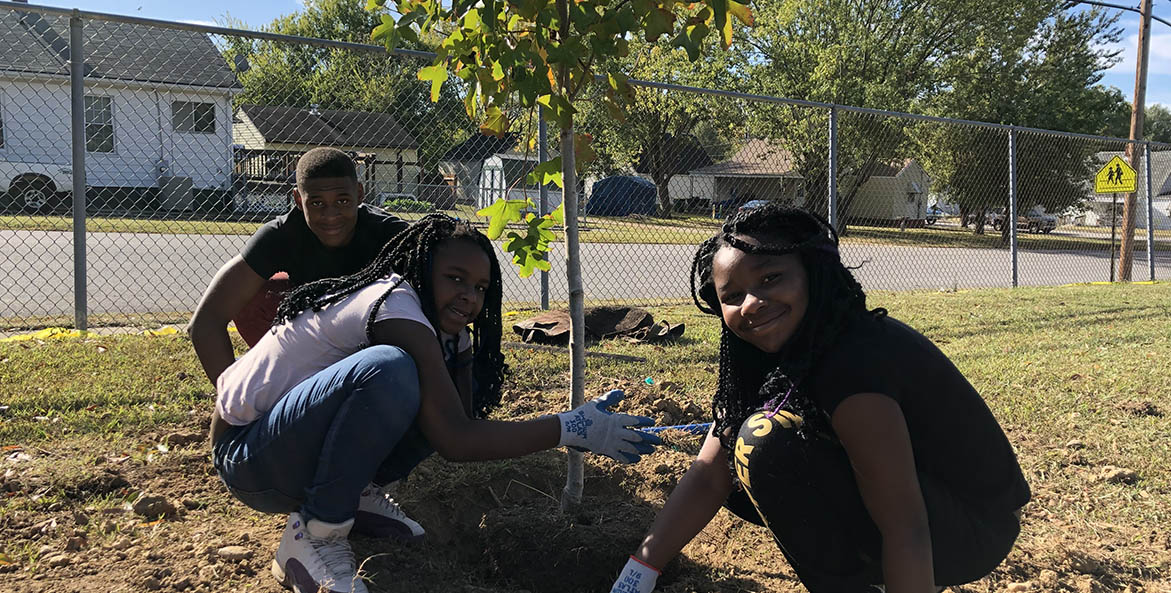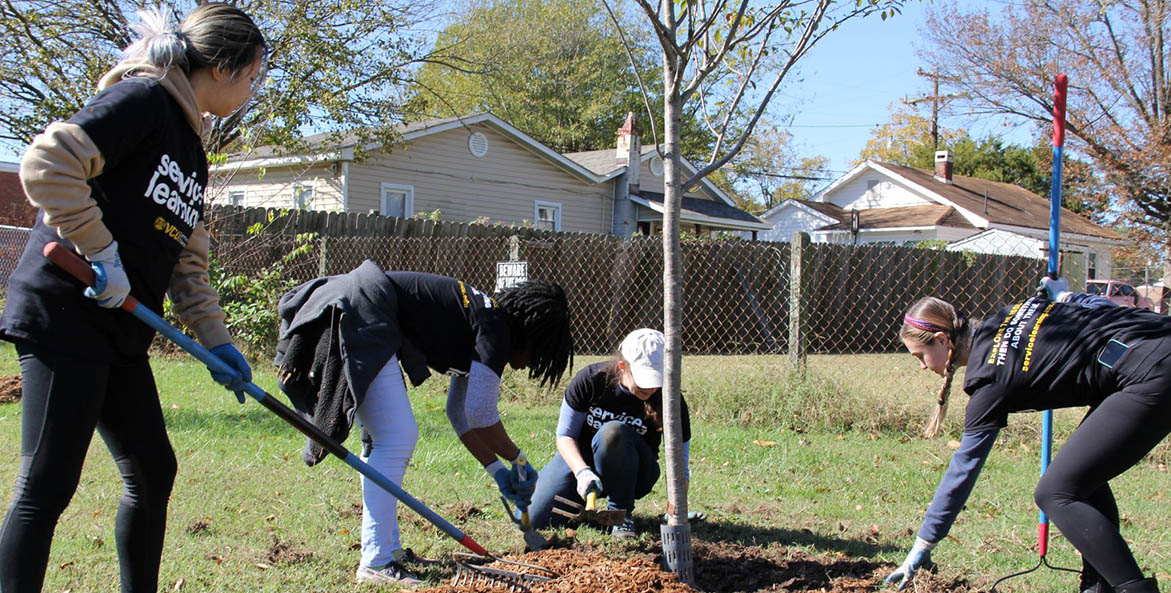Cities like Richmond, Norfolk, and Washington, D.C., are full of asphalt parking lots, roads, and brick buildings whose hard, dark surfaces absorb the sun's heat. With trapped heat and less trees and green spaces, these cities get hot. Join Dr. Jeremy Hoffman, Chief Scientist of the Science Museum of Virginia, as he discusses his research on the urban heat island effect and recommendations on how policymakers can both improve the health of city residents while reducing polluted runoff by "throwing shade."
Learn more in the following story.
Cooling Cities, Cleaning Waterways
Rising temperatures could cause thousands to tens of thousands of additional premature deaths in the United States each year by century's end, making heat one of the deadliest impacts of climate change. But not everyone will suffer equally.
Cities are often warmer than surrounding rural areas due to the high density of roads, buildings, and hard surfaces, a phenomenon called the urban heat island effect. Even within the same city, certain neighborhoods are hotter—as much as 16 degrees Fahrenheit hotter, according to a 2019 study that looked at heat variations in Richmond, Baltimore, and Washington, D.C.
"You already have a heat event, then add on top of that you might live in part of the city that further amplifies that extreme heat event," said Hoffman, one of the study's authors. "It becomes extremely dangerous."
Moreover, Hoffman's research found the hottest neighborhoods today are the same neighborhoods once redlined under racially discriminatory home lending practices in the mid-1900s. These neighborhoods often remain lower income and communities of color, with fewer trees and open spaces, exposing residents who need to walk or use public transportation to dangerous heat.
The future doesn't have to be so hot. Planting urban trees and reducing hard surfaces not only cools city streets, it helps slow and filter the polluted stormwater runoff that impairs streams and the Bay.

Planting trees at Hopewell’s DuPont Elementary School
GabbyTroutman/CBF Staff
"We really get a win-win-win by designing [cities] for heat amelioration," Hoffman said. "You can flip it and say, let's design for stormwater mitigation. It's the same practices, and we get potentially huge, generational benefits by doing this."
CBF is working with city managers and community groups to place more trees and green infrastructure projects in cities across the watershed. In Virginia, our Hopewell Restoration Project is increasing the urban tree canopy in the city of Hopewell and establishing a Tree Stewards program to plant and maintain city trees. The project includes working with communities and Hopewell's Department of Recreation and Parks to design and map a planting plan for the city, plant hundreds of trees in targeted areas, and train volunteer Tree Stewards to work with the city's arborist to stake, water, prune, weed, and mulch the city's trees.

Volunteers plant and maintain trees in Hopewell.
Kenny Fletcher/CBF Staff
We used GIS mapping to create a tree canopy assessment for the city in summer 2018, which revealed a direct correlation between low-income areas and areas with a low percentage of tree canopy. These same census blocks also have lower life expectancies.


